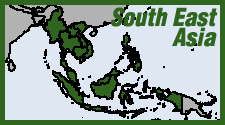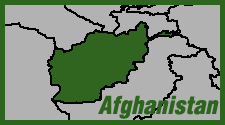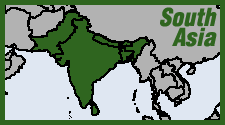 Burma's President Thein Sein signed a ceasefire Oct. 15 with eight armed rebel groups, in a bid to bring the country's multiple ethnic insurgencies to an end before next month's general elections—the first since a nominally civilian government took over and pledged a democratic transition in 2011 after decades of dictatorship. The agreement seeks to incorporate rebel groups into the political process, ending a war that has persisted (with varying levels of intensity) since Burmese independence in 1948. But while the pact is optimistically dubbed the Nationwide Ceasefire Agreement (NCA), seven armed groups involved in the peace talks did not sign the final deal. Among the seven non-signatories is the largest rebel army, the United Wa State Army (UWSA), with an estimated 25,000 fighters. Trying to put a good face on things, Thein Sein said , "history will judge the value of the NCA not by the number of signatories but how the terms of the NCA are effectively implemented." Also not signing on are the Kachin Independence Army (KIA) and the Kokang armed factions along the Chinese border. One of the most significant groups signing on to the deal, the Karen National Union (KNU), actually entered a bilateral ceasefire with the government in 2012.
Burma's President Thein Sein signed a ceasefire Oct. 15 with eight armed rebel groups, in a bid to bring the country's multiple ethnic insurgencies to an end before next month's general elections—the first since a nominally civilian government took over and pledged a democratic transition in 2011 after decades of dictatorship. The agreement seeks to incorporate rebel groups into the political process, ending a war that has persisted (with varying levels of intensity) since Burmese independence in 1948. But while the pact is optimistically dubbed the Nationwide Ceasefire Agreement (NCA), seven armed groups involved in the peace talks did not sign the final deal. Among the seven non-signatories is the largest rebel army, the United Wa State Army (UWSA), with an estimated 25,000 fighters. Trying to put a good face on things, Thein Sein said , "history will judge the value of the NCA not by the number of signatories but how the terms of the NCA are effectively implemented." Also not signing on are the Kachin Independence Army (KIA) and the Kokang armed factions along the Chinese border. One of the most significant groups signing on to the deal, the Karen National Union (KNU), actually entered a bilateral ceasefire with the government in 2012.

 Fighters loyal to ISIS have seized substantial territory in Afghanistan, according to an ominous
Fighters loyal to ISIS have seized substantial territory in Afghanistan, according to an ominous  A June 21 article in Sri Lanka's
A June 21 article in Sri Lanka's  2014 witnessed considerable fraying of the international Drug War consensus—but the horrific violence that finally sparked this long-overdue reckoning continued to take its grim toll. On the upside, Uruguay regsitered its
2014 witnessed considerable fraying of the international Drug War consensus—but the horrific violence that finally sparked this long-overdue reckoning continued to take its grim toll. On the upside, Uruguay regsitered its 





Recent comments
1 week 5 days ago
1 week 5 days ago
4 weeks 6 days ago
5 weeks 5 days ago
9 weeks 5 days ago
13 weeks 4 days ago
17 weeks 4 days ago
18 weeks 2 days ago
28 weeks 2 days ago
32 weeks 3 days ago